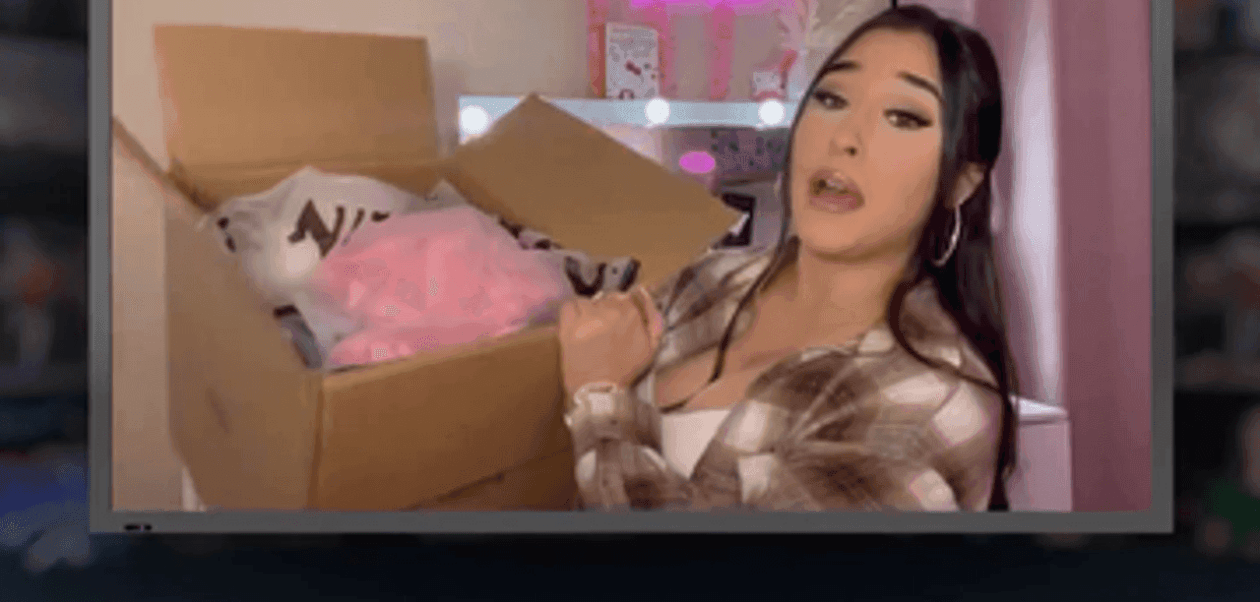
WASHINGTON (TND) — It has never been easier to browse the latest styles and get them delivered to your door within days, thanks to the proliferation of fast fashion brands. One of them in particular, the Chinese e-commerce site Shein, has grown into an industry behemoth and its alleged practices have sparked concerns about the use of materials produced with forced labor of ethnic and religious minorities in China.
In 2021, Congress passed the Uyghur Forced Labor Prevention Act to block imports from the Xinjiang Uyghur Autonomous Region of China, where, according to the State Department, “genocide and crimes against humanity are ongoing.”
Two lab tests conducted for Bloomberg News last year confirmed garments shipped to the United States by Shein were made with cotton from Xinjiang. Findings of a United Nations special rapporteur on contemporary forms of slavery and Labor Department research conclude the forced labor of Uyghurs and other ethnic minorities has been occurring in Xinjiang. China has long denied this.
It’s a horror Rushan Abbas confronts each day.
In 1989, at 21 years old, Abbas moved to the United States from Xinjiang, where her family remained. Her work to bring attention to these human rights atrocities has taken her around the world. She currently serves as the executive director for the Campaign for Uyghurs.
In September 2018, just days after participating in a panel at the Hudson Institute in Washington, D.C., discussing China’s so-called “re-education camps,” her sister Gulshan, a retired medical doctor living in the capital of Xinjiang, disappeared.
We have heard from (a) third party that she was sentenced harshly and we have no idea where she’s being held at,” Abbas said. “Every morning I wake up and I count the days, how many days that my sister’s been taken.”
Abbas said she and her husband have many more Uyghur family members also detained in China. In September, they learned Abbas’s father-in-law died back in January after more than six years in detention.
There is a vow, ‘never again’ after the WWII, but it’s happening all over in front of the entire world’s watch, but not many people are speaking out,” Abbas said. “With the Uyghur forced labor, Chinese government is making this genocide a profitable venture for the (Chinese Communist Party), for the Chinese government.”
Shein said it could not comment on those specific Bloomberg results. In a statement, a spokesperson said their policy is to comply with the trade laws in the countries in which it operates.
The statement went on to say, “We have zero tolerance for forced labor and no contract manufacturers in the Xinjiang region. We have implemented a robust system to support UFLPA compliance, which includes a code of conduct, independent audits, robust tracing technology, and third-party testing.”
Chapin Fay, the executive director of the group Shut Down Shein calls their statements “window dressing.”
They are making very little effort to address any of the concerns that we, and now the federal government, have been raising,” Fay said.
Fay is referring to growing calls from lawmakers in Congress for transparency from Shein about Bloomberg’s results and allegations Shein is taking advantage of a trade policy loophole known as “de minimis” that allows its products to evade import standards under the Uyghur Forced Labor Prevention Act.
The de minimis rule is typically thought of as a means to protect tourists returning to the United States with personal purchases. If items imported into the country for an individual are valued at less than $800, they are not subject to duty.
The U.S.-China Economic and Security Review Commission and the House Select Committee on the Chinese Communist Party say Shein and its competitor Temu “exploit trade de minimis import exemptions.”
Under Shein’s terms and conditions, customers authorize Shein to import the products under their name.
“And federal legislation to protect America from importing goods made with slave labor, put the legal responsibility to prove that you are not importing goods with slave labor, made with slave labor, on the importer of record, which Shein is not. It claims that the U.S. consumer is,” Fay said.
In June, a bipartisan group of senators introduced a bill meant to prevent Chinese imports from exploiting the de minimis loophole and reduce its threshold for other trade partners to reflect its levels for U.S. exports.
“And until and unless they have proven that they are not using slave labor, that they are paying back wages to any slave labor they may have used, renounced you know, the CCP’s treatment of the Uyghur people, and pay back tariffs and agree to pay back tariffs moving forward for the packages they send; until they have done all those things, we do not believe that Shein should be operating in the United States,” Fay said.
Shein said it supports reforms to de minimis “to create a more level, transparent playing field” but offers few specifics. In a letter to the head of an apparel trade association in July, Shein executive vice chairman Donald Tang said, “The lack of a universal supply chain management standard means American consumers receive goods every day from other retailers that may not adhere to globally accepted responsible sourcing and manufacturing practices.”
Absent federal action, Abbas urges customers to shop with their conscience.
“Today, it’s not just about the Uyghur people,” Abbas said. “This is about the future of the free world that we need to defend.”




